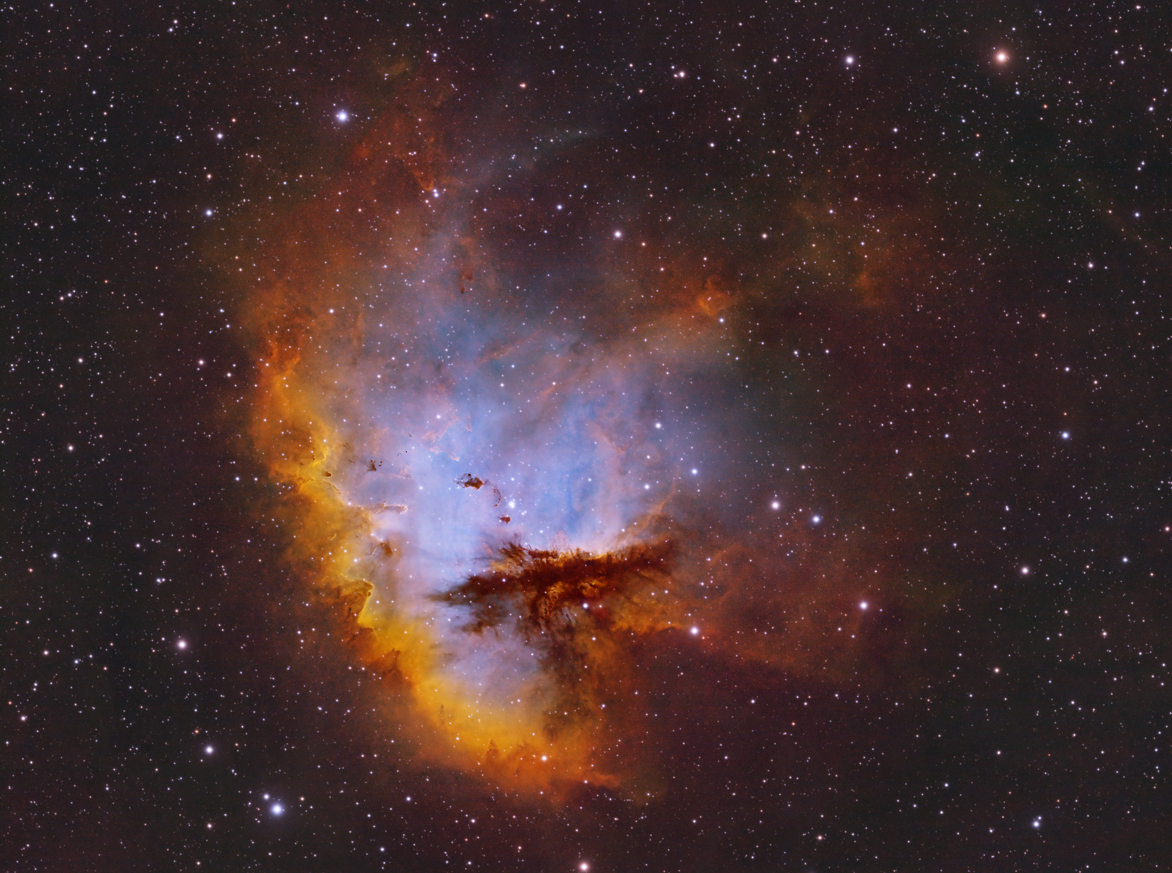NGC 281 (SH2-184, Pacman Nebula) and associated star
cluster IC 1590
Characteristics:
RA (J2000): 00h 52m 59s
Dec (J2000): +56 degrees 37' 19"
Position Angle: 0 degrees
Description:
This
image represents a total exposure of 13 hours through SII, Ha, and OIII
narrowband filters, processed using the Hubble Palette (SII, red
channel; Ha, green channel; OIII, blue channel).
NGC
281 is a star-forming region that is rich in HII emission due to
excitation by UV light emitted by the young star cluster IC 1590.
There are prominent Bok Globules in the central portion of this image,
which represent cooler regions of hydrogen gas that are incubating a
central protostar(s), not yet apparent in visible light. More
information about this region can be found at Rob
Gendler's website.
Photographic
Details:
Dates: September 3, 4, and 5,
2024.
Scope: Takahashi
FSQ106 at f5 on the Takahashi NJP
Mount.
Autoguider: ASI178 autoguider with SvBony 30mm guidescope, focal length
120mm.
Camera: ZWO ASI294MM at -10C,
with
7 position ZWO filter wheel. Pixel size is 2.3 microns (Bin 1x1),
yielding an image scale with the FSQ (530mm focal length) of 0.90
"/pixel (well matched for my seeing of 3 arcseconds).
Camera gain set to 50 (e-gain
2.13 electrons/ADU), offset 25.
Read noise at this gain level was 2.18 electrons rms.
Filters: Baader
Ha, OIII, and SII filters; 2 inch.
Image acquisition
software: MaximDL for camera control and autoguiding; CCD
Commander for automation.
Exposures: Total
exposure 13 hours (Ha: 5 hours, 300 second subs; OIII: 4 hours, 300
second subs; SII: 4 hours, 300 second subs).
Processing:
Calibration,
integration, deconvolution (BlurXTerminator), noise reduction
(NoiseXTerminator), and Narrowband Normalization (Bill Blanshan and Mike Cranfield
Pixinsight process) in
Pixinsight; subsequent processing in Photoshop.
Please
note: Graphics on this website may not be reproduced without
author permission.
Back to Nebulae
Home



